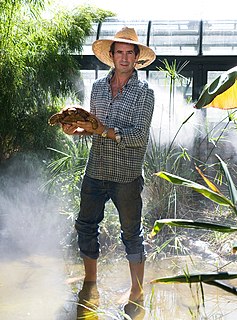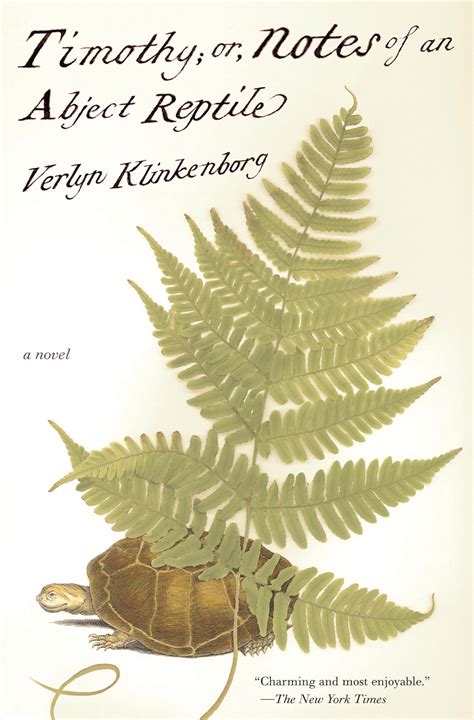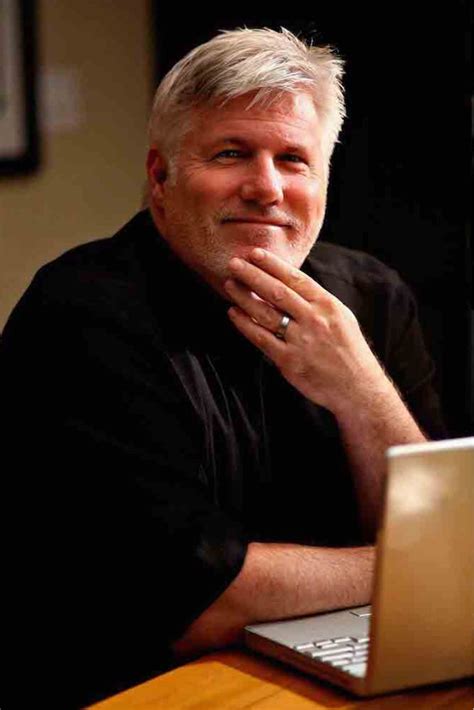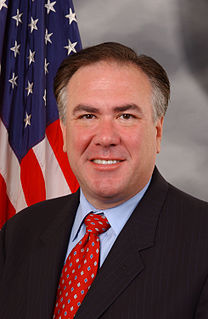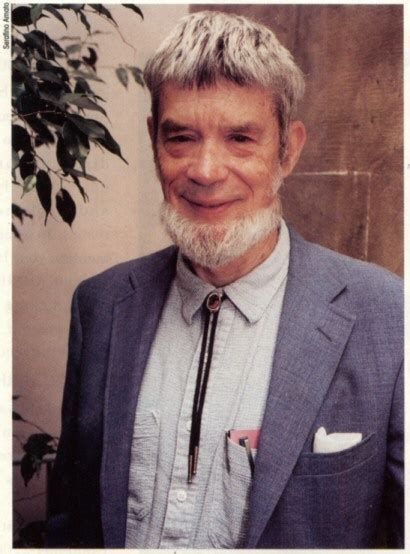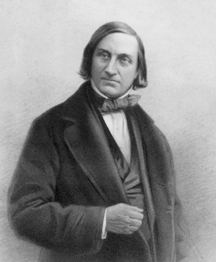Top 1200 Endangered Species Quotes & Sayings - Page 3
Explore popular Endangered Species quotes.
Last updated on April 20, 2025.
There is part of a structure in which every species is related to every other species. And they're built up on species, like a pyramid. The simpler cell organisms, and then the more complicated ones, all the way up to the mammals and birds and so forth. We call it 'developing upward'... The whole thing depends on every part of it. And we're taking out the stones from the pyramid.
It must be stressed that there is nothing insulting about looking at people as animals. We are animals, after all. Homo sapiens is a species of primate, a biological phenomenon dominated by biological rules, like any other species. Human nature is no more than one particular kind of animal nature. Agreed, the human species is an extraordinary animal; but all other species are also extraordinary animals, each in their own way, and the scientific man-watcher can bring many fresh insights to the study of human affairs if he can retain this basic attitude of evolutionary humility.
It's a fair guess that at the rate we're destroying habitat, especially but not exclusively in the tropics, we're pushing to extinction about one species every hour. That doesn't count the species whose populations are being reduced so greatly that diversity within the population is essentially gone.
Zoologists have reckoned there are up to at least 750 species of animal that have been observed exhibiting same-sex behaviour, or gender role transformation (which is very common in a wide range of fauna). There is only one species on earth, however, which has exhibited homophobia or transphobia. And that is the species homo sapiens sapiens. Us. So let's not allow the foolish, ignorant or bigoted ever to use words like "natural."
Today the human race is a single twig on the tree of life, a single species on a single planet. Our condition can thus only be described as extremely fragile, endangered by forces of nature currently beyond our control, our own mistakes, and other branches of the wildly blossoming tree itself. Looked at this way, we can then pose the question of the future of humanity on Earth, in the solar system, and in the galaxy from the standpoint of both evolutionary biology and human nature. The conclusion is straightforward: Our choice is to grow, branch, spread and develop, or stagnate and die.
My aim is to advocate that we make this mental switch in respect of our attitudes and practices towards a very large group of beings: members of species other than our own - or, as we popularly though misleadingly call them, animals. In other words, I am urging that we extend to other species the basic principle of equality that most of us recognize should be extended to all members of our own species.
Most people think visual information is more important than aural information - like, what's this big deal about sound? And why should I bother to listen, rather than look? And here are the facts: there are blind species, in the backs of the caves, the bottoms of the oceans. It's not essential on planet Earth to be able to see, to be a species. But there are no deaf animal species. You have to be able to hear, or you won't get the information you need in order to survive.
Biology is a science of three dimensions. The first is the study of each species across all levels of biological organization, molecule to cell to organism to population to ecosystem. The second dimension is the diversity of all species in the biosphere. The third dimension is the history of each species in turn, comprising both its genetic evolution and the environmental change that drove the evolution. Biology, by growing in all three dimensions, is progressing toward unification and will continue to do so.
Listing the polar bear under the Endangered Species Act could harm bear conservation efforts by eliminating revenues from the carefully-regulated sport hunting of polar bears by Americans and the importation of polar bear meat and trophies into the U.S. As hunting by non-Americans would replace hunting by Americans, nothing would be accomplished in terms of reducing the number of polar bears killed, but the revenue currently generated by American sport hunters for conservation and research efforts would be eliminated.
A belief, however necessary it may be for the preservation of a species, has nothing to do with truth. The falseness of a judgment is not for us necessarily an objection to a judgment. The question is to what extent it is life-promoting, life-preserving, species preserving, perhaps even species cultivating. To recognize untruth as a condition of life--that certainly means resisting accustomed value feelings in a dangerous way; and a philosophy that risks this would by that token alone place itself beyond good and evil.
The big question that scientists haven't even begun to get an answer for is how many species of microorganisms are there? Now, this is not stamp collecting. What we need is experts totally devoting their research to everything they can find out about every species, in a community of scientists who appreciate that every fact counts...everything new you learn about any species in any group is worth publishing somewhere.
All the species recognized by Botanists came forth from the Almighty Creator's hand, and the number of these is now and always will be exactly the same, while every day new and different florists' species arise from the true species so-called by Botanists, and when they have arisen they finally revert to the original forms. Accordingly to the former have been assigned by Nature fixed limits, beyond which they cannot go: while the latter display without end the infinite sport of Nature.




